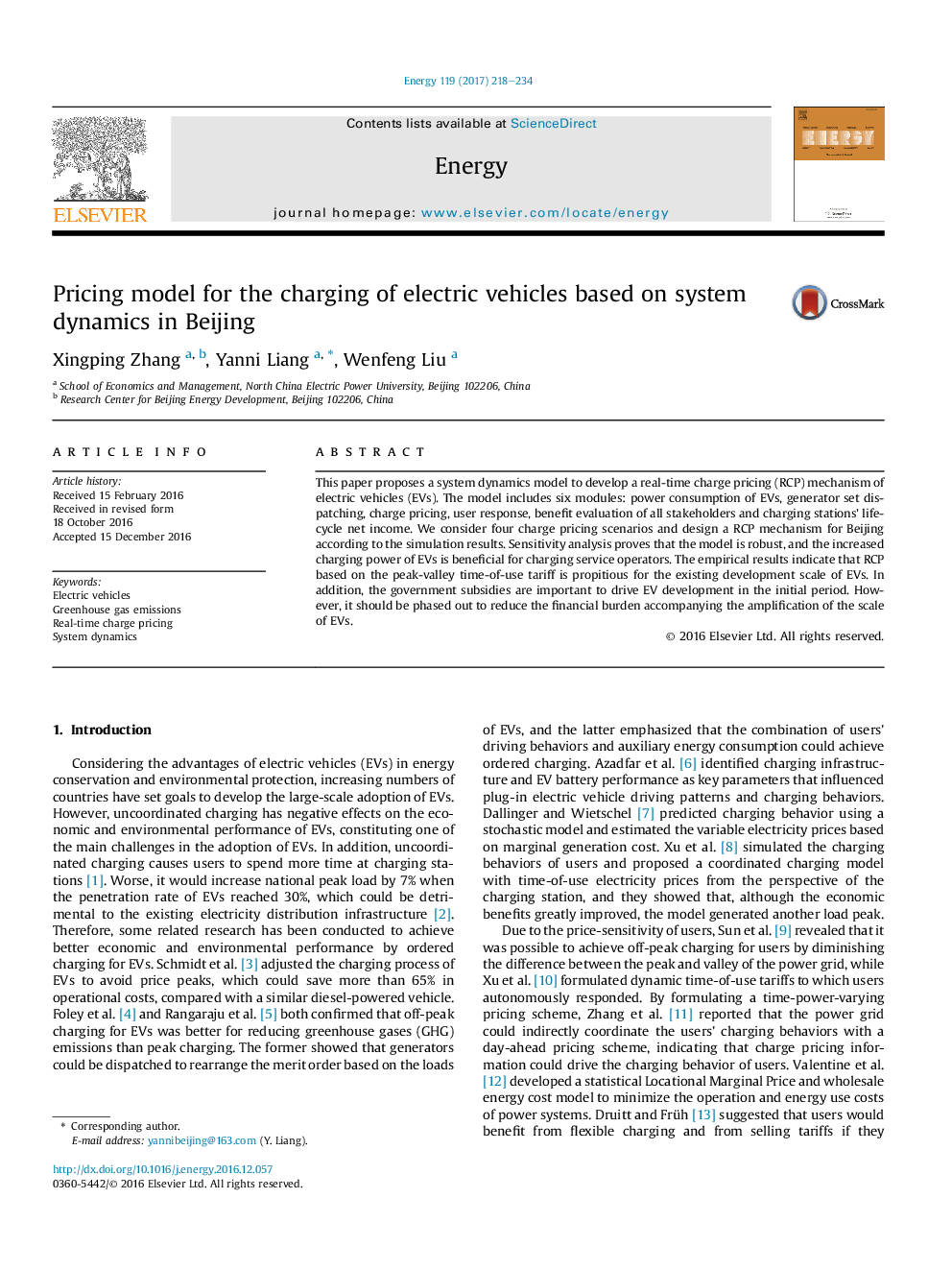| Article ID | Journal | Published Year | Pages | File Type |
|---|---|---|---|---|
| 5476877 | Energy | 2017 | 17 Pages |
Abstract
This paper proposes a system dynamics model to develop a real-time charge pricing (RCP) mechanism of electric vehicles (EVs). The model includes six modules: power consumption of EVs, generator set dispatching, charge pricing, user response, benefit evaluation of all stakeholders and charging stations' life-cycle net income. We consider four charge pricing scenarios and design a RCP mechanism for Beijing according to the simulation results. Sensitivity analysis proves that the model is robust, and the increased charging power of EVs is beneficial for charging service operators. The empirical results indicate that RCP based on the peak-valley time-of-use tariff is propitious for the existing development scale of EVs. In addition, the government subsidies are important to drive EV development in the initial period. However, it should be phased out to reduce the financial burden accompanying the amplification of the scale of EVs.
Related Topics
Physical Sciences and Engineering
Energy
Energy (General)
Authors
Xingping Zhang, Yanni Liang, Wenfeng Liu,
